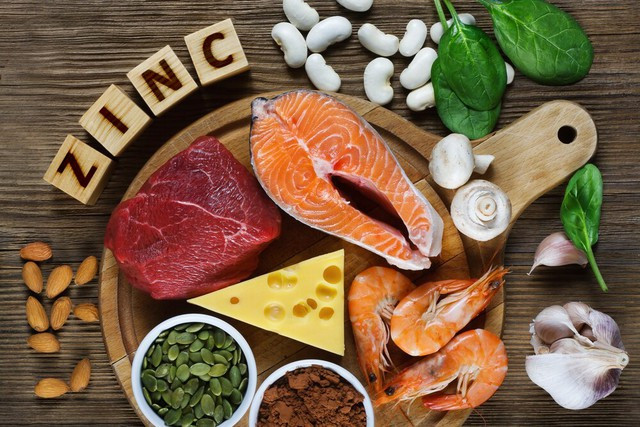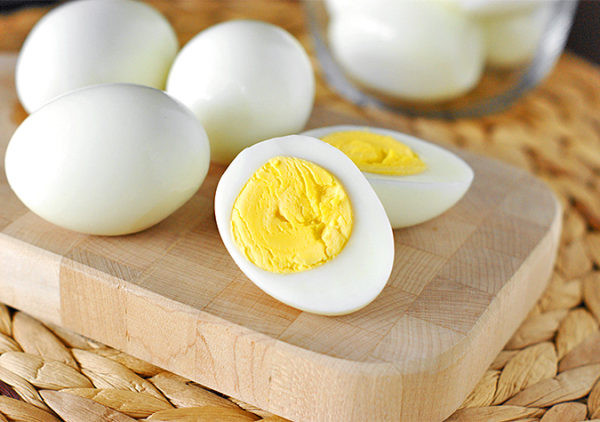What should people with weak immunity eat to increase resistance to prevent influenza A?
When the immune system is weak, the body is susceptible to disease, inflammation, and the digestive system is not healthy. Refer to some foods that help increase resistance, reduce the risk of disease, and fight colds, flu A...
According to Associate Professor, Dr. Nguyen Thi Lam - former Deputy Director of the National Institute of Nutrition, when we have a healthy immune system, we are less likely to get sick.
Dr. Nguyen Thi Lam said: To have a healthy immune system, the diet needs to be diverse and full of nutrients. In meals, we can balance protein (meat, fish, eggs, milk...); oil (oil, fat, oilseeds...); cereals (rice, noodles, bread, tubers...); green vegetables and ripe fruits...
1. Drink enough water
When you are sick, staying hydrated is one of the most helpful ways to help your body recover quickly. Drinking enough water will help loosen stuck mucus, easing uncomfortable symptoms like a stuffy nose, sore throat or cough. Drink at least 7-8 glasses of water a day to keep your body hydrated, as we tend to lose more water when we are sick.
2. Greek yogurt
Associate Professor, Dr. Nguyen Thi Lam - former Deputy Director of the National Institute of Nutrition
The diet also needs some fermented foods to help keep the intestines healthy, supplementing probiotics in the form of drinks, packets, water or live yogurt with probiotics.
Greek yogurt is loaded with disease-fighting probiotics and has more protein than regular yogurt. A meta-analysis published in the Korean Journal of Family Medicine found that probiotics may help prevent and treat the common cold. Researchers found that people who ate more probiotic foods daily had a lower risk of catching a cold than those who didn't eat any probiotic-rich foods.
3. Salmon is rich in zinc, good for people with weak immune systems.
Zinc is a nutrient that plays an important role in many biological functions, especially the immune system, helping the body increase resistance and fight infections. Research shows that zinc supplementation can reduce the risk of severe symptoms and shorten the duration of respiratory infections such as flu, colds, sinusitis, pneumonia...
Salmon is not only rich in protein but also a rich source of zinc, a nutrient that has been shown to help reduce the symptoms of the common cold. If you want to keep your family, especially your children, away from colds this winter, you should feed them foods rich in zinc.

The Journal of Family Practice published a study examining the effects of zinc on the common cold in children aged 1-10 years. Researchers found that zinc significantly reduced the severity and duration of symptoms when given within 24 hours of the onset of cold symptoms. The researchers noted another trial involving children aged 6.5-10 years that demonstrated zinc is also a useful supplement in preventing colds. Children who took 15 mg of zinc daily for seven months were found to have fewer colds during flu season than children in the control group.
4. Dark chocolate
Dark chocolate contains large amounts of theobromine, an antioxidant that has been shown to help suppress coughs. A study published in Frontiers in Pharmacology found that theobromine was helpful in suppressing cough symptoms in people with bronchitis, but more research is needed to fully confirm their findings.

5. Extra virgin olive oil
This oil has been shown to help build and strengthen the body's immune system. A study published in the British Journal of Nutrition found that the high polyunsaturated fatty acid content in olive oil acts as an anti-inflammatory in the body, helping to boost the immune system and protect the body from infection.
6. Whole grain bread
According to a study published by the American Journal of Clinical Nutrition, whole grains contain anti-inflammatory properties that allow for increased production of healthy bacteria. According to research, 70% of your body's immune system is located in your gut. Therefore, it is important to keep your gut healthy if you want to have good resistance against disease-causing bacteria and viruses.
7. Eggs contain vitamin D to boost immunity

Eggs, especially the yolks, are packed with immune-boosting nutrients. Eggs contain a large amount of vitamin D, which is important for regulating and boosting immunity. According to a study published in the journal JAMA, participants who took vitamin D daily during the winter were less likely to catch a cold or any other upper respiratory infection than those who did not.
8. Garlic is very good for treating colds
Garlic is one of the best cold remedies and has been used for a long time. Garlic contains allicin, a sulfur compound that has strong antibacterial and anti-inflammatory effects. Therefore, garlic is considered a good food to treat flu, reduce nasal congestion, and reduce cough.
A review of foods published in the Cochrane Database of Systematic Reviews found that participants who ate garlic for three months experienced only 24 cases of the common cold, a significant reduction from 65 cases.
Garlic's nutrients and plant compounds give it powerful antioxidant properties, which help boost the immune system and prevent infection. Scientists also believe that garlic's antiviral properties may work in two ways: by blocking viruses from entering cells and by enhancing the immune response to effectively fight off invaders.
Associate Professor Nguyen Thi Lam gives advice: People should eat 15-20 foods a day and a variety of food groups. Each food has different ingredients so we will have more complete nutrients. We should pay attention to eating enough protein, vitamins A, C, D, E, ...; minerals such as iron, zinc, selenium ... also participate in immune factors or B vitamins are also needed in the diet.

